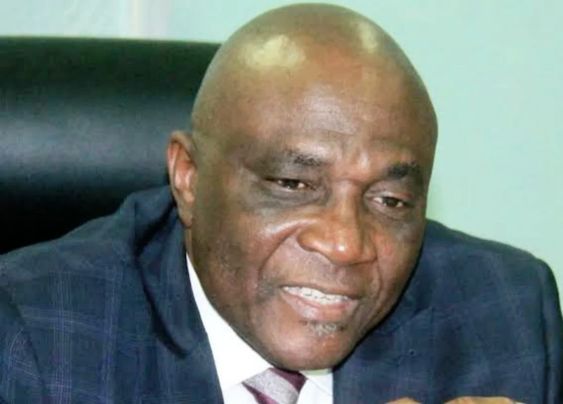Politics
inflammatory statements: Lawyer petitions the ICC about Tinubu spokesperson Onanuga

A lawyer named Gideon Christian has petitioned the International Criminal Court (ICC) for Bayo Onanuga’s prosecution for allegedly inciting violence during the 2023 elections. Onanuga is the director of media for the All Progressives Congress Presidential Campaign Committee.
The petition, dated March 27, 2023, and signed by Mark P. Dillon, Chief of Information and Evidence Unit, Office of The Prosecutor, was received by the ICC and recognised.
Following Babjide Sanwo-reelection Olu’s as governor of Lagos State, Onanuga made an anti-Igbo comment on Twitter, which drew criticism.
Nonetheless, Christian publicly alerted the international court of the situation and requested that the ICC look into the racial violence that broke out during the just finished election.
The International Criminal Court’s Office of Prosecutor acknowledged receiving your documents and letter, according to the letter.
Criminal Court acknowledges receiving your correspondence and/or documents.
“This message has been properly recorded in the Office’s Communications Register. According to the guidelines of the Rome Statute of the International Criminal Court, we shall take this communication into consideration as necessary.
Please be aware that just because you received this acknowledgement letter doesn’t indicate the Office of the Prosecutor has launched or will launch an investigation. As soon as a decision is made, we will let you know about it in writing and explain the reasoning behind it.
The attorney specifically charged Onanuga with warning voters on Twitter to avoid Lagos politics following the election.
Christian contended that this behaviour violated international law in an uncivilised manner and should be looked into.
“Please accept this communication to the International Criminal Court (the Court) requesting the Office of the Prosecutor to conduct an investigation into a series of ethnically motivated attacks that resulted in injuries and fatalities during the recently concluded Presidential and Governorship elections in Nigeria,” it continued.
“The intermediate report from the European Union Election Observation Mission in Nigeria, which monitored both polls, on March 20, 2023, identified several episodes of ‘organised violent attacks’ that caused’many casualties and fatalities.
“These incidents were the result of active (directly and indirectly) inciting groups of people to harm other people from the targeted ethnic group (the Igbo) as well as people who “look like” people from that ethnic group, according to Nigerian politicians and their agents.
It is well known that prominent people, particularly in Lagos, had openly advised Nigerians of the Igbo ethnic group not to use their constitutional right to vote prior to the elections.
“While this complaint does not specifically address the deprivation of that right (over which, it is acknowledged, this Court lacks jurisdiction), it is clear that these politicians and influential people incited racial hatred in an effort to deny members of this ethnic group their right to vote, which led to “many casualties and fatalities” among Igbo people, including those who “looked like them. Mr. Bayo Onanuga was undoubtedly one of them.
Following the conclusion of the Nigerian governorship election, which saw “many casualties and fatalities” among members of the Igbo ethnic group and those who “looked like them,” particularly in Lagos, Mr. Bayo Onanuga, a highly influential journalist turned politician who is now the director of media and publicity in the presidential campaign organisation of the ruling political party, threatened on Twitter that 2023 should be the year they vote.
Mr. Onanuga’s idea of interference came about as a result of Igbo voters in Lagos acting legally in accordance with their constitutional right to vote anywhere in Nigeria. This declaration was made in response to attacks on and killings of members of this ethnic community in Lagos during the gubernatorial election. Even after Mr. Onanuga’s tweet, the attacks persisted.
The threat made in Mr. Onanuga’s post to hurt members of the Igbo ethnic group in upcoming elections in 2027 is what is most upsetting.
As a result, I ask that this Court look into the activities of Mr. Onanuga and other Nigerians who directly or indirectly organised, incited, helped to quell, and alleviated the ethnically driven election and post-election violence in Nigeria and take the necessary legal measures to hold them accountable. Future violations of international law will be avoided as a result.
Vanguard
